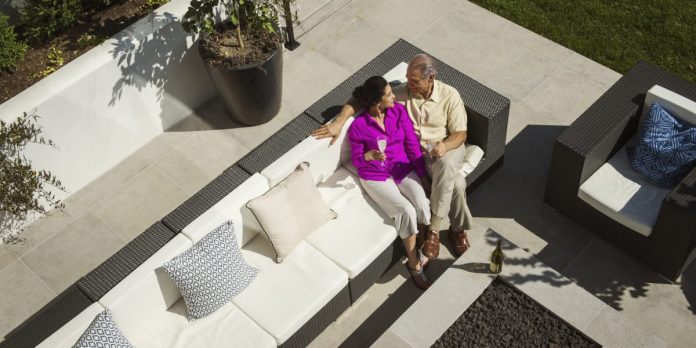Home prices have doubled over the past decade, rising almost 50% in the last five years alone. And the cost of owning a home is the highest on record. This means a lot of people wouldn’t be able to afford their current home if they had to buy it today, according to a Redfin-commissioned survey.
Homeowners were asked, “if you were looking to purchase a home, do you think you could afford a home like yours in your neighborhood today?” And almost 40% of respondents said they “probably” or “definitely” couldn’t. Most homeowners who responded to the survey (roughly 80%) have lived in their home for at least five to 10 years. “That means the majority of respondents have seen housing prices in their neighborhood skyrocket since they purchased their home,” the analysis said.
“Broken down by generation, baby boomers are least likely to be able to afford their current home if they were to buy it today,” the survey found. Almost half, or 45%, of baby boomers said they couldn’t afford a home in their neighborhood today. And while they may not like to hear it, everyone loves to talk about how baby boomers bought their homes for what feels like next to nothing and watched them appreciate in value. In their defense, boomers had to deal with much higher mortgage rates, and home prices didn’t feel like nothing to them at the time.
Either way, home prices were already high before the pandemic and its corresponding housing boom—but that’s when prices really skyrocketed. They haven’t fallen meaningfully since. Although, there’s more to it: Mortgage rates were lower than they’d ever been during the pandemic (which is part of the reason we had a housing boom), but they shot up as the Federal Reserve raised interest rates to tame inflation. Now, the average 30-year fixed mortgage rate is 7.43% and the median sales price for homes throughout the country is $417,700. That’s a lot more than people are used to, and on the mortgage-rate side, it’s triggered the lock-in effect—why sell your home with a rate below 3% for one that’s above 7%?
“The fact that buying a bigger, better home–or even a similar home–is financially out of reach for so many Americans is the driving force behind the mortgage-rate lock-in effect,” the analysis said. “Nearly all homeowners have a mortgage rate below today’s level, contributing to a shortage of homes for sale.”
But the housing world is complicated. It’s never enough to simply say high home prices are bad—because who are they bad for? Well, anyone that wants to buy a home. But high home prices aren’t bad for people who already own a home. Separately, people stopped selling their homes because of higher mortgage rates, but keeping people in their homes is far better than forcing them to sell (an artifact of 30-year mortgages, as Redfin’s chief executive, Glenn Kelman, recently put it in an interview with Fortune).
“Rising home prices are a double-edged sword,” Redfin senior economist Elijah de la Campa said. “On the one hand, Americans who already own homes benefit from rising values and they can consider themselves lucky they broke into the housing market while they could still afford it.”
He continued: “On the other hand, price appreciation makes the prospect of buying a new home daunting or even impossible for many people who want to move. Prices have risen enough that a similar home and location would be much pricier than a home someone already owns–even accounting for inflation. Add elevated mortgage rates to the equation, and moving up to a bigger, better home is even more costly and perhaps out of reach.”
Not being able to afford your current home if you had to buy it today is better than not being able to afford a home at all. Still, it goes to show how unaffordable housing has become.


